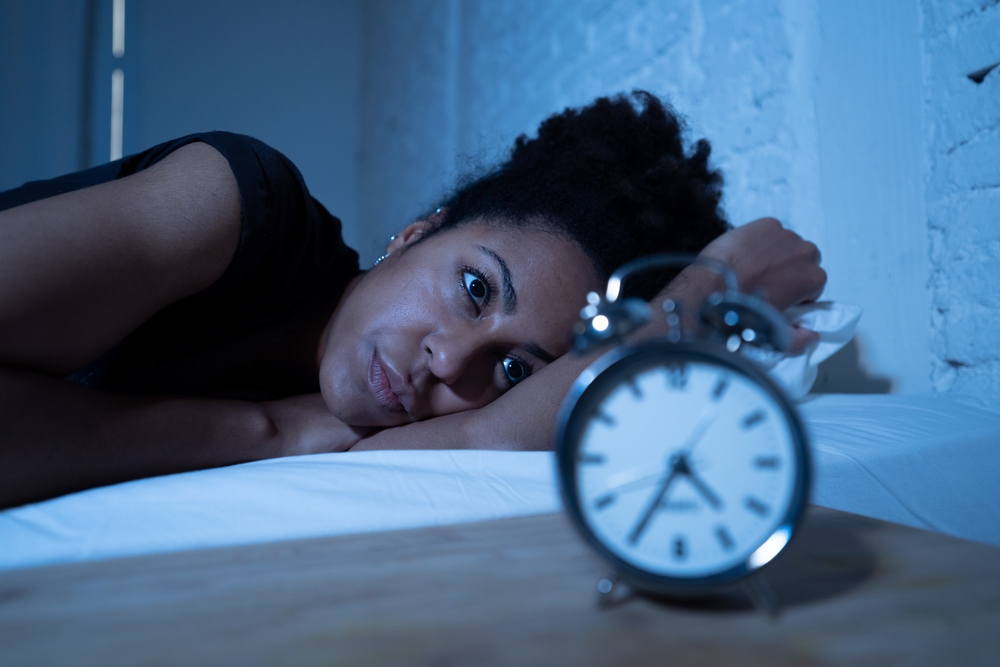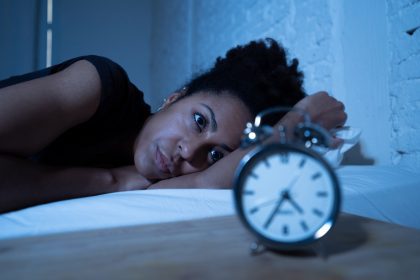The occasional restless night is a universal experience, but when sleeplessness becomes a persistent companion, it may signal a more profound issue lurking beneath the surface. Chronic sleep disturbances often serve as a glaring indicator that your mental health requires attention, extending far beyond the realm of simple sleep aids or lifestyle adjustments.
The intricate dance of sleep and mental well-being
Sleep isn’t merely a nightly reset button; it’s a critical component of our psychological equilibrium. Understanding this intricate relationship can be the first step on the path to reclaiming both restful nights and emotional stability.
Stress: The notorious sleep thief
Among the most common culprits behind sleepless nights are elevated stress and anxiety levels. Mental health conditions such as generalized anxiety disorder, panic disorder, and post-traumatic stress disorder (PTSD) can wreak havoc on one’s ability to fall asleep or maintain uninterrupted rest throughout the night.
When stress infiltrates your life, it triggers the release of hormones like cortisol, making relaxation an elusive goal. This mental turbulence often manifests as sleepless nights, potentially creating a vicious cycle where sleep deprivation exacerbates anxiety, which in turn further disrupts sleep patterns.
Depression’s dark influence on sleep
While depression is often associated with excessive sleeping, insomnia is an equally valid symptom for many battling this condition. Feelings of hopelessness, pervasive sadness, or a sense of worthlessness can keep the mind active even when the body craves rest, resulting in prolonged periods of nighttime wakefulness.
If your sleep issues are accompanied by persistent low moods, lack of motivation, or a general disinterest in life’s pleasures, it’s crucial to seek help. Early intervention can be transformative in managing both mental health and sleep quality.
The ripple effect of sleep deprivation
Chronic sleep deprivation doesn’t just impact your mood—it takes a toll on your physical health as well. It weakens the immune system, increases the risk of heart disease, and can impair cognitive functions such as memory and concentration.
Moreover, prolonged sleep deprivation can exacerbate existing mental health conditions. The longer one goes without proper rest, the higher the likelihood of experiencing heightened irritability, mood swings, and even emotional numbness. In severe cases, extended periods of sleep deprivation can lead to hallucinations or psychotic episodes, underscoring the urgency of addressing sleep issues before they spiral into more serious problems.
Recognizing when it’s time for professional help
While occasional sleepless nights are normal, persistent sleep issues lasting weeks or months should not be ignored. If lifestyle changes—such as limiting caffeine, practicing relaxation techniques, or maintaining a regular sleep schedule—prove ineffective, it’s time to consider seeking mental health support.
Mental health professionals can help diagnose underlying issues such as anxiety, depression, or other conditions affecting your sleep. Cognitive-behavioral therapy (CBT) is particularly effective for sleep disturbances related to mental health, helping individuals modify thought patterns and behaviors contributing to insomnia.
In some instances, medication may be prescribed to manage anxiety or depression, which can subsequently improve sleep quality. Addressing the root cause of sleepless nights—your mental health—often leads to more sustainable solutions than temporary fixes.
Sleep hygiene: A pillar of mental health support
While professional help is crucial, implementing good sleep hygiene can significantly support your mental health. Consider incorporating these habits:
- Create a calming environment: Transform your bedroom into a sanctuary of peace by minimizing noise, reducing light, and maintaining a comfortable temperature.
- Limit screen time before bed: The blue light emitted from electronic devices can interfere with melatonin production, the hormone regulating sleep.
- Practice mindfulness or meditation: Engaging in relaxation exercises before bed can help calm your mind and prepare your body for rest.
- Stick to a consistent sleep schedule: Maintaining regular sleep and wake times helps regulate your internal clock, facilitating easier sleep onset at night.
These practices, combined with professional support, can significantly improve both mental health and sleep quality.
Breaking the isolation of sleepless struggles
It’s easy to feel alone when sleep struggles dominate your life, but millions worldwide grapple with the intertwined issues of mental health and sleep disorders. Many hesitate to seek help due to stigma, fear, or a lack of understanding about the deep connection between sleep and mental health.
Reaching out for support—whether through a therapist, doctor, or support group—can address not just the symptom of sleeplessness but the underlying mental health issues causing it. Seeking help isn’t just about achieving better sleep; it’s about improving your overall well-being and quality of life.
Prioritizing mental health: A path to restful nights
In today’s fast-paced world, it’s tempting to dismiss sleep issues as minor inconveniences. However, when sleepless nights become a regular occurrence, they should be viewed as a clear sign that change is necessary. Prioritizing mental health is key to unlocking not only better sleep but also a healthier, happier life.
If you or someone you know is struggling with sleep and suspects a link to mental health, don’t delay taking action. Numerous resources are available, from therapy to hotlines, designed to provide the necessary support. By prioritizing mental well-being, you’re not just working towards better sleep—you’re giving yourself the opportunity to thrive.
The journey to better mental health and restful nights begins with small, manageable changes. Start by setting aside time for relaxation before bed, limiting caffeine intake, or practicing mindfulness to calm racing thoughts. Most importantly, don’t hesitate to seek professional support if you feel your mental health is contributing to your sleepless nights.
Taking care of your mental health is a journey worth pursuing for the sake of your overall well-being and peace of mind. With the right support, better sleep, and a stronger sense of mental balance, you can regain control and move forward to a healthier, more restful future.
This story was created using AI technology.











